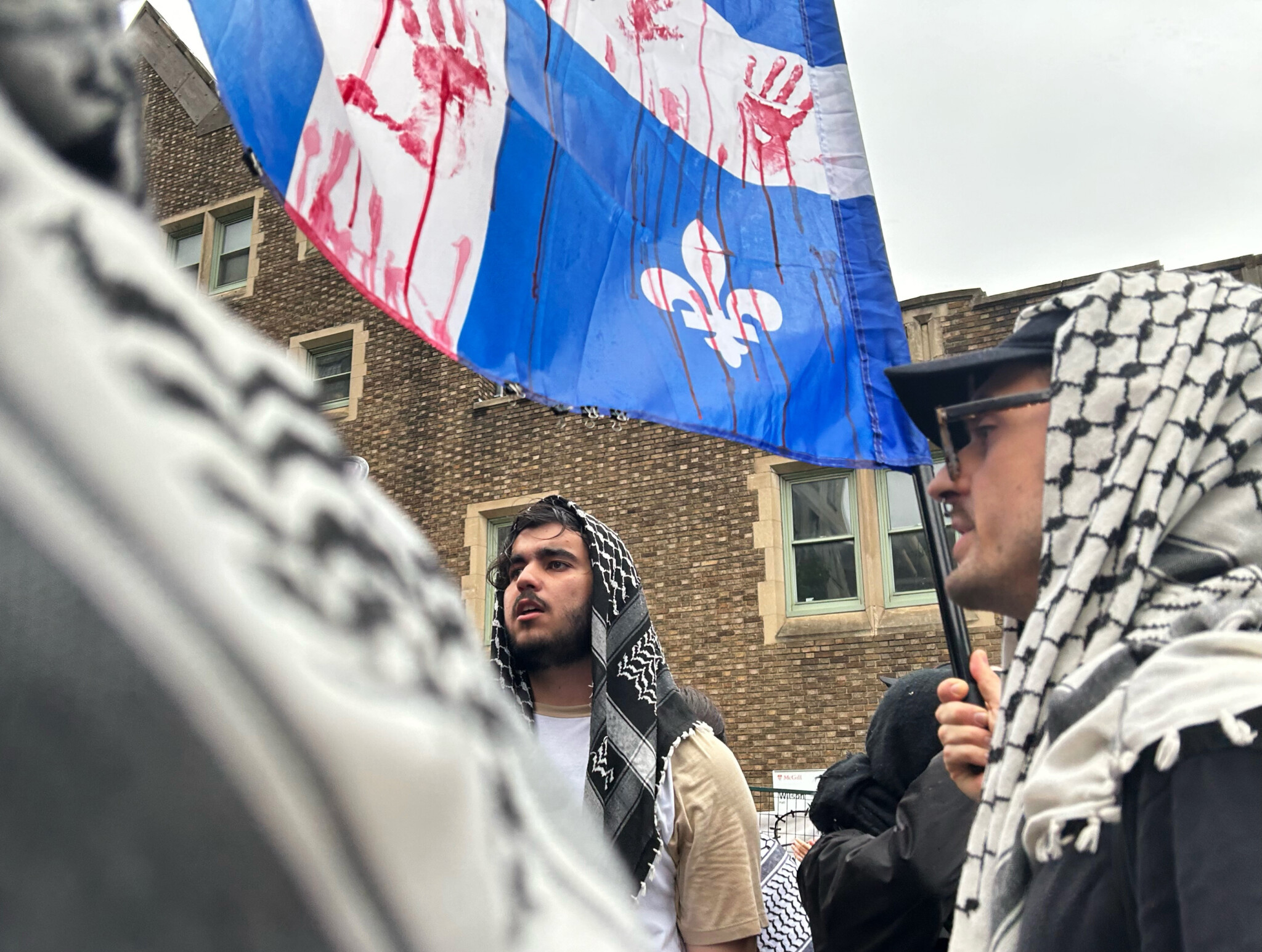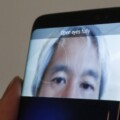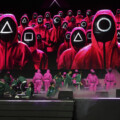Jewish university students and community leaders say they are concerned about the return to class after the 2023-2024 academic year saw several antisemitic incidents and protests. They are also calling for more truthful conversations and learning opportunities about Israel and Zionism on campuses.
The Hub spoke to multiple Jewish students and community leaders about the issue.
A tumultuous 2023-2024 academic year
In the aftermath of Hamas’ deadly October 7 massacre, which left 1,200 people dead and 250 abducted as hostages, several Canadian academics expressed support online for Palestinians “taking their land back,” while student organizations issued statements labeling the attack as “justified,” “necessary,” “heroic,” and “monumental.” Pro-Palestinian students were recorded tearing down posters of hostages at multiple universities and calling for intifada. At the time, Jewish students told True North it was “best not to be visibly Jewish” on their campuses.
Antisemitism persisted through the spring and summer, with activist students setting up protest encampments, inspired by those seen at elite American institutions like Columbia, to demand that their administrations divest from Israel. The Hamas red triangle was seen at several Canadian encampments, along with Hamas logos, and the encampments often featured calls to “globalize the intifada.” Jewish students who visited the encampments reported seeing open support for terrorists, which they described as “pretty scary.”
Concerns about the return to class
“It’s definitely a bit nerve-wracking,” said Michael Mandel, a student at York University, when asked about the return to campus. “Last year, the student union put out a very controversial and antisemitic statement praising Hamas and calling October 7 resistance, and I really don’t want us to deal with that again.”
University of British Columbia student Chaim Yoel Ben Adama echoed Mandel’s sentiments and said pro-Palestinian campus protests are already being planned for on his campus. He said he is particularly concerned about potential celebrations on October 7 on the anniversary of the attack.
“I know they’re already planning events, it’s distasteful, to say the least,” he said. “This whole culture of martyrdom and killing and dying for nationalistic purposes isn’t something that should be glorified on campus.”
The new school year has already seen several anti-Israel incidents, including at McGill University, where pro-Palestinian students staged an anti-Israel walkout and ripped up freshly laid grass. At Toronto Metropolitan University, individuals were seen holding a banner reading “Zionism off our campus,” while at the University of British Columbia, encampment activists boasted about being “back” and shared a photo of a severed pig’s head placed at the gates of university residences along with a banner reading “pigs off campus.”
Breaking: Protestors at McGill university ripped up the new grass lawn in the name of Palestine.
— Eyal Yakoby (@EYakoby) August 31, 2024
The school had to re-grass the lawn after the encampment from last semester destroyed it, now the students are directly disrespecting the groundskeepers. pic.twitter.com/X6ikBgxNGd
Speaking to The Hub, B’nai Brith Canada manager of research Richard Robertson said, “I think it’s safe to say that the community is apprehensive.” He added there was a “palpable sense of apprehension about the return to school.”
“Jewish students are concerned,” he added.
A misinformed generation?
Ben Adama and Mandel told The Hub they believe more needs to be done to address what they see as one of the root causes of antisemitic activism on campus—misinformation and misconceptions about the state of Israel and Zionism.
“Many times when I’m interacting with these people, they’re not aware of [basic facts about Israel],” said Ben Adama. “They’ve just been lied to and brainwashed to think of Zionism as the most evil thing to ever exist, even though they can’t define it.”
Mandel added that many students “make claims [about Israel] without knowing facts or even visiting the country.”
According to polling by Angus Reid, young Canadians, many of whom get their news from social media sites like TikTok, are the least supportive of Israel’s right to exist and the most supportive of Hamas. Canadians 18-34 are the least supportive of charging Hamas terrorist leaders with war crimes, and are the most supportive of charging Israeli Prime Minister Benjamin Netanyahu with war crimes, compared to other age groups. Forty-three percent of people aged 18-34 said they support the Palestinians in the current conflict, while just 15 percent support Israel.
The Leger poll found that 52 percent of people aged 18-34 believe Israel is committing genocide against Palestinians in Gaza, a claim that several experts have refuted. Just 15 percent believe Israel is not committing genocide.
American Enterprise Institute senior fellow Danielle Pletka and scholar Sahar Soleimany explained in an article that “per the United Nations, genocide requires an ‘intent to destroy, in whole or in part, a national, ethnical, racial, or religious group.’ As statements by Israeli officials have made clear, their intentions in Gaza are limited to eliminating Hamas’s operational capacity and bringing home hostages.” The Gazan population has also increased considerably in the last 20 years.
The Angus Reid poll also found that 53 percent of Canadians aged 18-34 believe Israel is an apartheid state, while just 16 percent of Canadians aged 18-34 say Israel is not an apartheid state. In Israel, Arabs can vote, study, work, live, and serve in Parliament, in the courts, in the military, and in government.
Students and faculty at Canadian universities have also claimed that Zionism, the belief in “the development and protection of a Jewish nation in what is now Israel,” is a racist and colonial ideology—despite the majority of Israel’s population being not of European descent
A Harvard-Harris poll conducted in the United States meanwhile saw 67 percent of respondents aged 18-24 agree that “Jews as a class are oppressors and should be treated as oppressors.” In the U.S., Jews are the victims of 60 percent of hate crimes linked to religion despite making up just two percent of the population. In Canada, Jews are the victims of 70 percent of religion-motivated hate crimes despite making up just one percent of the population.
The need for more education
Ben Adama believes that “education is the path to peace,” but added that “we definitely need a lot of effort to do this because, especially at UBC, Jews are a very small minority.”
For his part, Mandel established a chapter of Students Supporting Israel at York University. SSI is an international Zionist campus movement that seeks to promote “a better understanding of Israel throughout North and South America as a member of the family of nations, with a fundamental right to exist as a Jewish, democratic state, within secure borders.”
“We do events [about] Israeli culture… we also do a lot of tabling,” Mandel explained. “We tabled for an organization called Save a Child’s Heart. It’s a children’s [health organization] based in Israel that brings children from developing countries and treats them for heart disease and heart problems. The doctors at this hospital also train doctors from third world countries.”
Scott Goldstein, the Centre for Israel and Jewish Affairs’s director of university relations, agrees that education ought to be part of the effort to tackle campus antisemitism. He said universities must play a role in this effort.
“When we do encounter individuals or groups who are misinformed, the best way to correct that is through education, and the university can create safe spaces for productive dialogue,” he said.
Goldstein added that such conversations go “a long way towards improving the campus climate,” because “if you ask the average Jewish student on campus, they would likely indicate that campus feels like a toxic environment, it feels like it’s unsafe and unwelcoming. The university administrations have the ability to, first, express explicitly what is and is not acceptable on their campus, and at the same time, demonstrate how to have productive conversations.”
Goldstein said it is not just students who need more Israel education, but also those in charge of “diversity, equity and inclusion” offices so that these offices are welcoming to Jews.
“When it comes to DEI offices, there can be a lack of understanding and a lack of education when it comes to Jewish issues,” he said, citing “instances where people might work for a university and view Jews as white individuals that fit within a dichotomy of oppressor versus oppressed, and ignore the history and ethnic and religious elements of what makes up the Jewish people.”
“These are things that are corrected and improved with education,” Goldstein added.
In a letter to university presidents outlining a series of demands for the upcoming school year, Deborah Lyons, the federal special envoy on preserving Holocaust remembrance and combating antisemitism, and MP Anthony Housefather, the special advisor to the prime minister on Jewish community issues and antisemitism, highlighted the importance of ensuring that all university DEI programs include the mainstream Jewish community, with DEI officers acting as champions of Jewish inclusion.
Lyons and Housefather also called on universities to clearly communicate and enforce campus rules, support Jewish students and faculty, reaffirm faculty responsibilities, and anticipate and mitigate disruptions on the one-year anniversary of the Hamas attack on Israel.
Jewish students, faculty and staff at Canadian post-secondary institutions have the right to learn, teach and work in a safe environment, free of antisemitism. @AHousefather and I have sent a letter to University Presidents with several recommendations to ensure a safe return to… https://t.co/VHI3gBdbpQ
— Deborah Lyons (@DeborahLyonsSE) August 14, 2024
The Hub reached out to Canada’s biggest universities to ask if they had received the Lyons and Housefather letter and if they planned to implement the demands highlighted in it. The responses we received can be found here.








